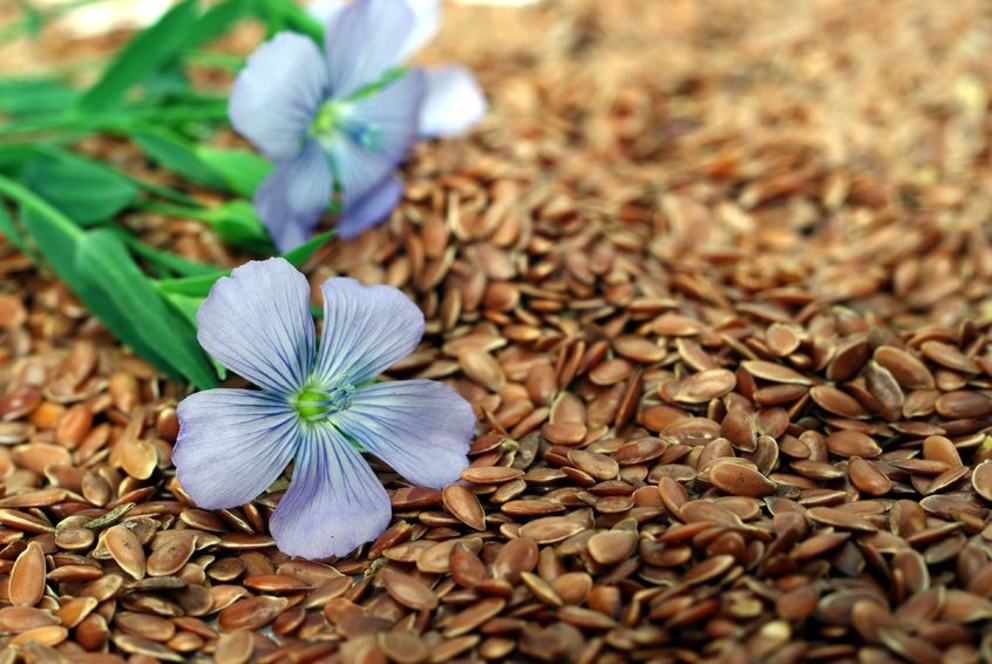Flaxseed helps prevent and kill breast cancer, meta-analysis reveals
Written By:Sayer Ji, Founder
As we edge closer toward Breast Cancer Awareness month,[1] one cause that most likely won't be marketed to us is that of women taking back control of their health by consuming more cancer-fighting foods.
In years past, Smith & Wesson's pink hand gun and KFC's "buckets for the cure,"[2] have made the list of approved 'pink' products, but nowhere does one find fund-raisers and races for better access to and consumption of the extensive list of foods that increasingly science has vetted as actually preventing and/or killing breast cancer. [3]
All the more reason why a new meta-analysis on flaxseed and breast cancer, published in the journal Integrative Cancer Therapy, is so timely.[4] The review was no small undertaking, as it obtained its findings by sorting through 1,892 records from a variety of biomedical databases, including MEDLINE, Embase, the Cochrane Library and AMED from inception to January 2013, concerning any available human interventional or observational data pertaining to flax and breast cancer.
They discovered the following benefits of flaxseed among newly diagnosed breast cancer patients:
- Decreases in hot flash symptomatology
- Increased cell death (apoptosis) within their tumors
- Decreased HER2 expression (a protein associated with breast cancer malignancy)
- Decreased breast cancer proliferation
Additional findings among uncontrolled and biomarker studies included:
- Improved atypical cytomorphology (i.e. normalization of cells)
- Improved mammographic density
- Possible anti-angiogenic actitivity (i.e. anti-invasive properties)
Finally, observational data suggested the consumption of flaxseed:
- Decreased risk of primary breast cancer by 18%
- Improved mental health by 76%
- Lowered mortality among breast cancer patients by 32%
The study authors concluded:
"Current evidence suggests that flax may be associated with decreased risk of breast cancer. Flax demonstrates antiproliferative effects in breast tissue of women at risk of breast cancer and may protect against primary breast cancer. Mortality risk may also be reduced among those living with breast cancer."
These findings are extremely valuable to women, many of whom have been wrongly led to believe that the No. 1 most important step in breast cancer prevention is "early detection" via x-ray based breast screenings — as if the point is to watch and wait for the juggernaut of genetically-based cancer to unfold within their bodies, and "catch it early" if you can.
Truth be told, never before have so many women been at so great a risk of unnecessary harm from breast screening, due to the millions of dollars of cause marketing propaganda that assault them year round in myriad products and services ostensibly put in place to help "raise awareness," or "raise money to raise awareness," as to why they should participate in the dangerous ritual of mammography.
Ironically, and tragically, it is now firmly established (but still widely unknown) that participating in conventional breast screenings may increase breast cancer mortality, as a direct result of it generating countless cases of misdiagnosed and mistreated "cancer" in healthy women every year (1.3 million cases in the U.S. over the past 30 years).
Never before have women so desperately needed an alternative path toward breast cancer prevention, beyond subjecting themselves, as a "preventive" measure, to annual or bi-annual doses of highly carcinogenic mammography radiation — a screening procedure that we now know mostly detects harmless lesions known as ductal carcinoma in situ (DCIS), and that a National Cancer Institute commissioned panel recently suggested should not even be called cancer, owing to its intrinsically harmless or indolent nature.
Flaxseed is actually only one of hundreds of natural foods, spices and substances that have proven anti-breast cancer activity, even among drug-resistant and multi-drug resistant breast cancer cell lines.
Disclaimer: This article is not intended to provide medical advice, diagnosis or treatment. Views expressed here do not necessarily reflect those of GreenMedInfo or its staff.
© September 11th 2013 GreenMedInfo LLC. This work is reproduced and distributed with the permission of GreenMedInfo LLC. Want to learn more from GreenMedInfo? Sign up for the newsletter here //www.greenmedinfo.com/greenmed/newsletter.
For full references please use source link below.

